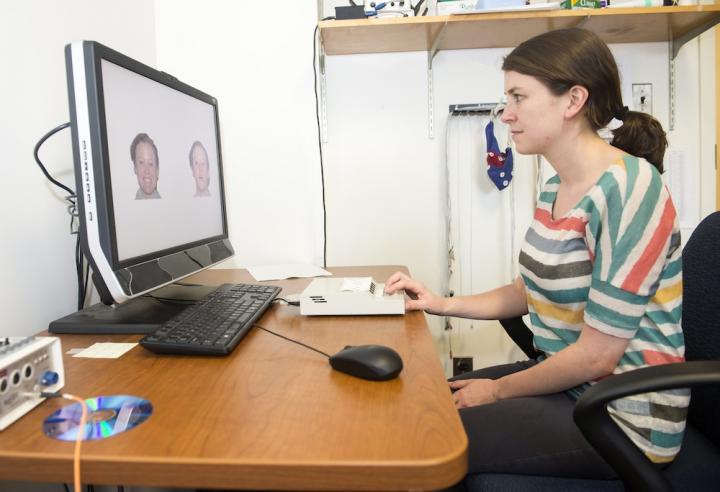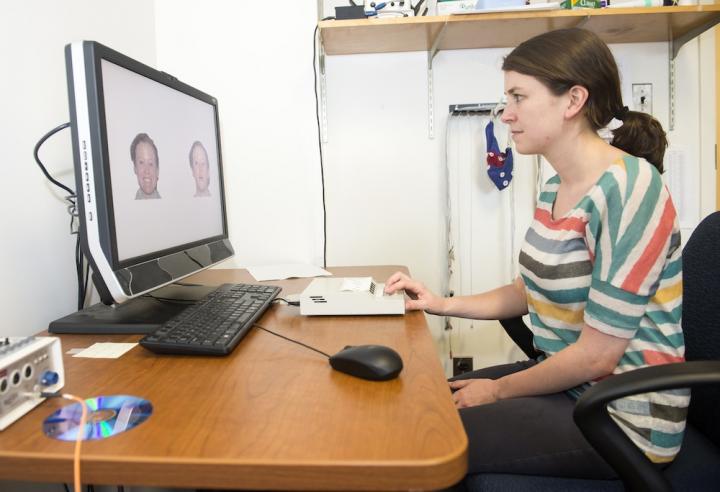
Credit: Jonathan King/Binghamton University
BINGHAMTON, NY – Pupil dilation in reaction to negative emotional faces predicts risk for depression relapse, according to new research from Binghamton University, State University of New York.
Researchers at Binghamton University, led by PhD student Anastacia Kudinova, aimed to examine whether physiological reactivity to emotional stimuli, assessed via pupil dilation, served as a biological marker of risk for depression recurrence among individuals who are known to be at a higher risk due to having previous history of depression. Participants were 57 women with a history of major depressive disorder (MDD). The researchers recorded the change in pupil dilation in response to angry, happy, sad and neutral faces. The team found that women's pupillary reactivity to negative (sad or angry faces) but not positive stimuli prospectively predicted MDD recurrence.
"The study focuses on trying to identify certain markers of depression risk using measures that are readily accessible, reliable and less expensive," said Kudinova. "It is something we can put in any doctor's office that gives us a quick and easy objective measure of risk."
Additionally, the researchers found that both high and low reactivity to angry faces predicted risk for MDD recurrence. These findings suggest that disrupted physiological response to negative stimuli indexed via pupillary dilation could serve as a physiological marker of MDD risk, thus presenting clinicians with a convenient and inexpensive method to predict which of the at-risk women are more likely to experience depression recurrence.
"It's a bit complicated because different patterns of findings were found for pupil reactivity to angry versus sad faces. Specifically, really high or really low pupil dilation to angry faces was associated with increased risk whereas only low dilation to sad faces was associated with risk (high dilation to sad faces was actually protective)," said Brandon Gibb, professor of psychology at Binghamton University and director of the Mood Disorders Institute and Center for Affective Science.
###
Other contributors to this research include Katie Burkhouse and Mary Woody, both PhD students; Max Owens, assistant professor of psychology at the University of South Florida, St. Petersburg; and Greg Siegle, associate professor of psychiatry at the University of Pittsburgh School of Medicine.
The paper, "Pupillary reactivity to negative stimuli prospectively predicts recurrence of major depressive disorder in women," was published in Psychophysiology.
Media Contact
Brandon Gibb
[email protected]
607-777-2511
@binghamtonu
http://www.binghamton.edu





